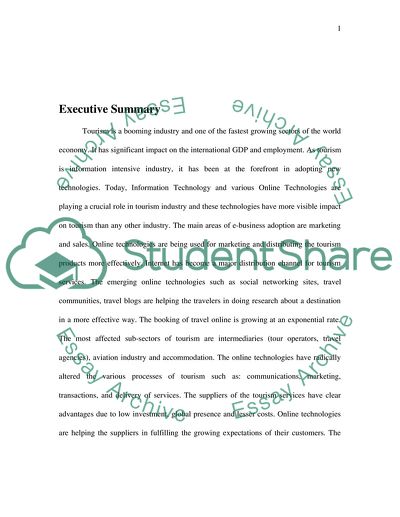Cite this document
(How Tourism Services Are Being Impacted by Information Technology and Term Paper, n.d.)
How Tourism Services Are Being Impacted by Information Technology and Term Paper. Retrieved from https://studentshare.org/tourism/1734549-identify-how-the-processes-undertaken-in-tourism-have-been-impacted-by-new-developing-online-technologies-and-appraise-their-ability-to-make-a-more-successful-organisation
How Tourism Services Are Being Impacted by Information Technology and Term Paper. Retrieved from https://studentshare.org/tourism/1734549-identify-how-the-processes-undertaken-in-tourism-have-been-impacted-by-new-developing-online-technologies-and-appraise-their-ability-to-make-a-more-successful-organisation
(How Tourism Services Are Being Impacted by Information Technology and Term Paper)
How Tourism Services Are Being Impacted by Information Technology and Term Paper. https://studentshare.org/tourism/1734549-identify-how-the-processes-undertaken-in-tourism-have-been-impacted-by-new-developing-online-technologies-and-appraise-their-ability-to-make-a-more-successful-organisation.
How Tourism Services Are Being Impacted by Information Technology and Term Paper. https://studentshare.org/tourism/1734549-identify-how-the-processes-undertaken-in-tourism-have-been-impacted-by-new-developing-online-technologies-and-appraise-their-ability-to-make-a-more-successful-organisation.
“How Tourism Services Are Being Impacted by Information Technology and Term Paper”, n.d. https://studentshare.org/tourism/1734549-identify-how-the-processes-undertaken-in-tourism-have-been-impacted-by-new-developing-online-technologies-and-appraise-their-ability-to-make-a-more-successful-organisation.


